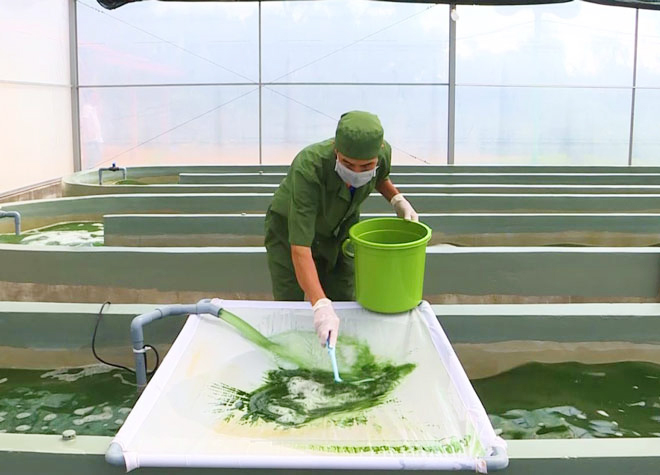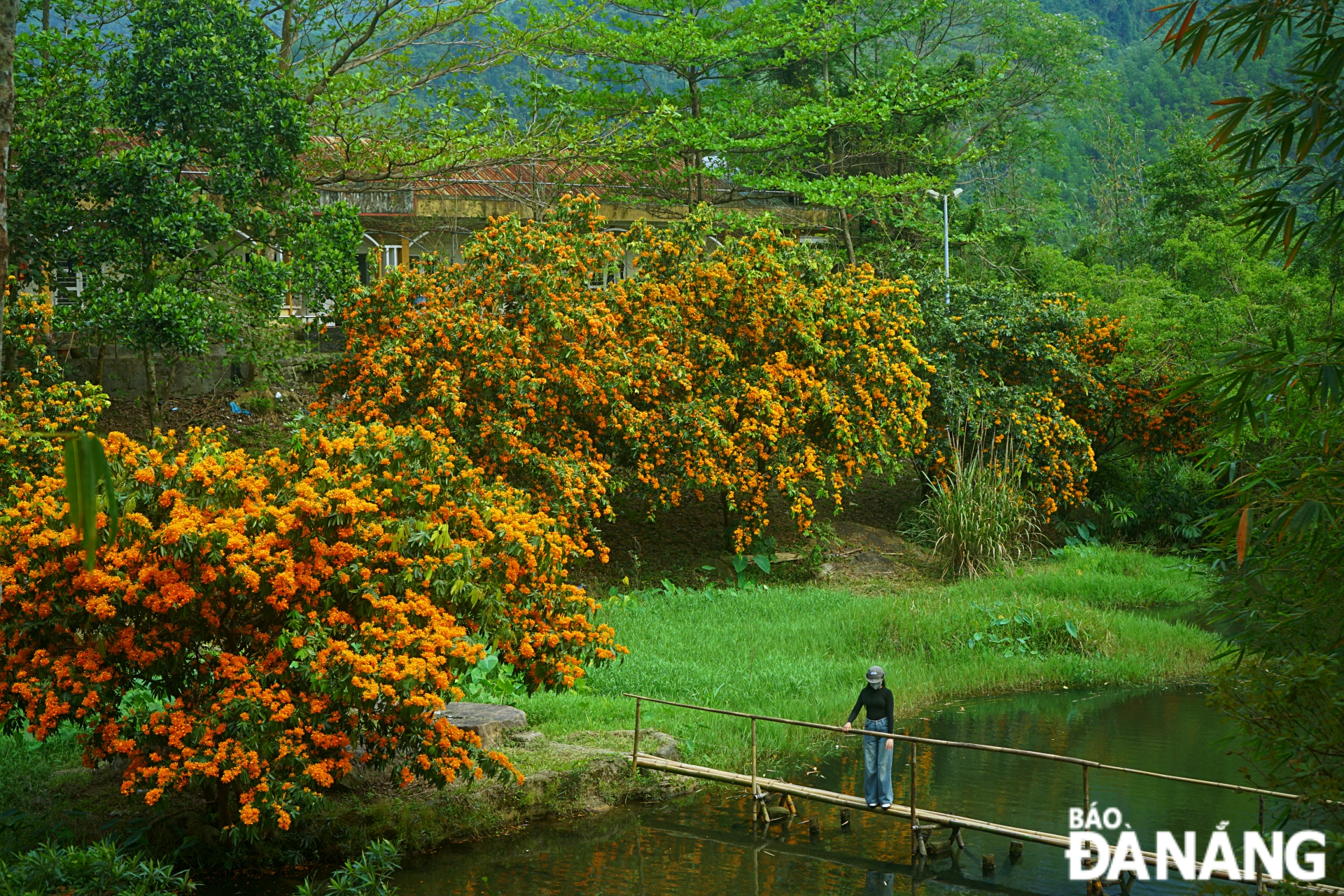Startup project turns into OCOP product
After 3 years of transferring spirulina cultivation and processing technology between AlgaeVi research team from the Department of Biology - Environment at the Da Nang University of Education and the Van Tuong Agricultural Technology Cooperative from Quang Ngai Province, the spirulina product has been recognised as a local OCOP (One Commune - One Producy) item by the province’s administration.
 |
| The water environment at the Van Tuong Cooperative, as assessed by experts, is as suitable for cultivating and caring for spirulina. Photo courtesy of the Van Tuong Cooperative |
As one of the startup projects incubated at the Da Nang Hi-Tech Park incubator in 2020, the research project ‘Developing a production model applying high technology and creating value-added products from biomass Spirulina in Da Nang’ was consulted by the AlgaeVi research team and transferred to the Van Tuong Hi-tech Cooperative upon successful research.
After a pilot period, the Van Tuong Cooperative has been proactive in seed sources, mastering farming techniques and stable production of a number of foods and pharmaceuticals from spirulina such as algae powder, algae nuggets, capsules, biscuits, jellies, tea, yogurt and moon cakes, all of which are popular with consumers.
It is known that the spirulina variety cultivated at the Van Tuong Cooperative was analyzed and selected carefully by the AlgaeVi research team from 40 varieties of spirulina throughout the provinces and cities across the country.
According to Ph.D Trinh Dang Mau, the Deputy Dean of the Department of Biology and Environment, the Da Nang University of Education, the representative of the research team, spirulina is a type of bacteria with a green spiral shape, measuring 0.25-1mm in size.
This is a variety of algae that provides many essential nutrients such as sugar, protein, fatty acids and vitamins, helping the body strengthen resistance and being good for the cardiovascular system, nervous system, promoting anti-aging and avoiding the risk of cancer.
Mr. Do Bien Nhat, Director of Van Tuong Hi-tech Agricultural Cooperative said that this is the first model of cooperation between the cooperative and scientists outside the province. Through this coordination, the cooperative has gradually built infrastructure, ensuring farming activities and developing products from algae.
According to Mr. Nhat, the cooperative exploits natural water sources from the laterite-rich area in An Loc Village, Binh Tri Commune, Binh Son District, forming a farming area of more than 70,000m3.
Spirulina thrives in water with a temperature of 35-40 degrees Celsius and harvesting the first batch after 25 days and the remainder after 10 days. In addition, the farming process uses recycled water filtration and the amount of waste water is then supplied to fish farms or aquatic gardens.
“Thanks to boldly linking with the research team of Da Nang University of Education to cultivate and produce spirulina, the Van Tuong Cooperative created jobs for 20 local youths, earning VND 5 million – VND 7 million /person/month, improving the quality of labour through training and fostering skills and knowledge of culturing and caring for algae as well as using advanced machines and technologies in harvesting and processing products”, said Nhat.
Developing clean agriculture and organic agriculture is the right direction agricultural service cooperatives follow. Therefore, scientific research projects and projects aimed at this field both support farmers to stabilise production and create opportunities for the project to make “an escape” from the laboratory, contributing to the local socio-economic development.
According to Mr. Do Bien Nhat, after the cooperative's spirulina product became an OCOP product in Quang Ngai Province in 2022, the income from spirulina increases by about 30 - 40%. Many products are always out of stock such as algae yogurt, algae biscuits, capsules, algae tea and algae nuggets.
In order to continue to expand its operation scale in a sustainable way, the Van Tuong Cooperative plans to produce beauty products from spirulina such as masks and lotions, as well as associate with ecotourism companies to introduce visitors to the process of cultivating and processing algae through field trips to the cooperative.
Facing the development needs of the affiliates, the Da Nang University of Education is committed to continuing to ensure tissue culture techniques and provide clean algae seeds for the project.
Le Van Kiem, a former student of the Department of Biology and Environment at the Da Nang University of Education, a member of the AlgaeVi research team, affirmed that the project has solved the most important step, which is the application of molecular biology to selective breeding and domestication, helping the algae to adapt themselves well to the aquatic environment in the Van Tuong Cooperative.
In addition, strict compliance with the cultivation and processing process will help products from spirulina achieve high quality, hereby bringing products to ensure the health of consumers.
Reporting by HUYNH LE - Translating by A.THU








